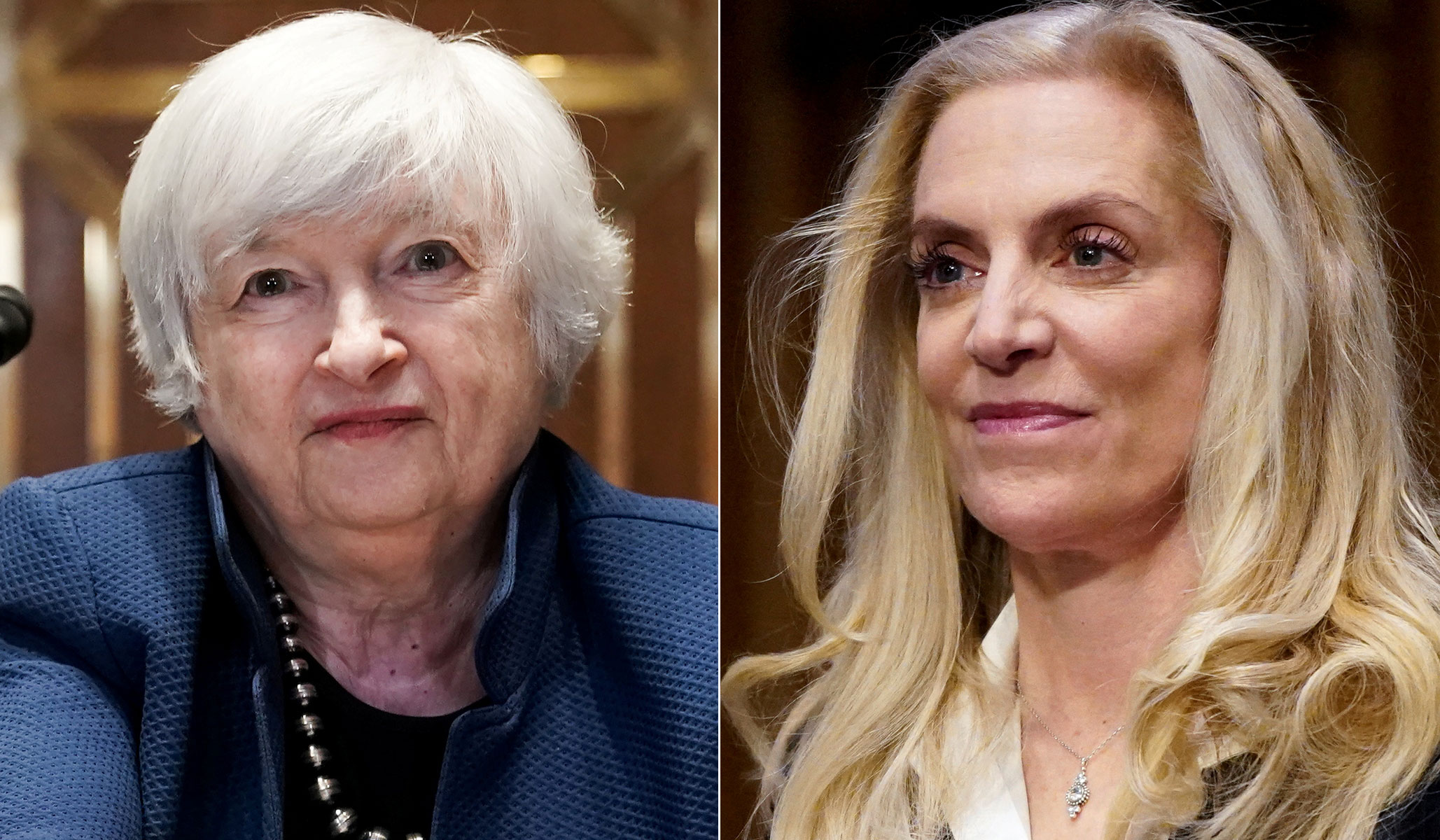


It’s a bad look for the Fed to have two of its top former officials working for the president whose spending laws are likely partly responsible for high inflation.
NRPLUS MEMBER ARTICLE L ael Brainard, the vice chairwoman of the Federal Reserve, is leaving the central bank to join the Biden administration as director of the National Economic Council. She shouldn’t.
Brainard only recently became vice chairwoman, succeeding Richard Clarida on May 23 of last year. She has been on the board of governors, however, since 2014, when she was appointed by Barack Obama. She had worked for the Obama administration before that, as undersecretary of the treasury for international affairs, from 2010 to 2013.
That career trajectory for central bankers is relatively normal. They work in the private sector first, hold staff-level and then appointed positions in government, and then get appointed to the Fed. That’s the same pattern as Fed chairman Jerome Powell. Another common path is from academia to the Fed, with government work in between. That’s what Ben Bernanke did on his way to serving as the Fed’s chairman.
Going from government to the Fed is a promotion. The Fed is a globally esteemed institution at the pinnacle of the economics profession, even though it might not always seem that way. Since the widespread adoption of independent central banks in developed economies over the past several decades, central bankers have developed an international professional culture that views politics as beneath them. That can lead to some arrogance, and central bankers certainly make mistakes. But overall, we know that independence from politics leads to better monetary policy than leaving the money supply in the hands of politicians.
More in Biden Administration
-
Biden Administration Allowing State Medicaid Funds to Cover Groceries, Nutritional Care
-
Biden’s SOTU Boasts about Decreasing Illegal Immigration Were Fraudulent, Too
-
Mayor Pete’s Canceled Ambitions
Central bankers’ attitude, to paraphrase the Apostle Paul, is roughly, “When I was a political appointee, I talked like a political appointee, I thought like a political appointee, I reasoned like a political appointee. When I became a central banker, I put the ways of politics behind me.” Or at least that ought to be the attitude.
We saw Janet Yellen return to a political job after completing her term as Fed chairwoman, when she became secretary of the treasury for Joe Biden. In that role, she has disgraced herself by, among other things, making grotesque arguments for abortion before the Senate (i.e., babies cost money, so, for some women, abortion is a good financial decision); attempting to rationalize Biden’s massive expansion of the IRS, and celebrating Biden’s economic policy while inflation was at 7.1 percent.
Yellen is a very smart person who had a respected career as an economist before her time at the Fed. She was 71 years old when her term as Fed chairwoman ended. She could have retired as a distinguished economist and central banker and written a book about her experience, as her predecessor, Ben Bernanke, has done. Such books are helpful in the development of macroeconomics, which is still a relatively new field of study that is in need of continued refinement.
Instead, she chose to work for Biden, who, even by politician standards, is economically illiterate. She had to know going in that she was going to be asked to defend economically indefensible policies.
Brainard is now following in Yellen’s footsteps. Taking a White House job after rising to vice chairwoman of the Federal Reserve is a huge demotion. Director of the National Economic Council isn’t even a Senate-confirmed position. She’ll now be on the hook to defend “buy American” rules, incoherent competitiveness policies, and Biden’s conspiracy theories about energy companies.
Brainard and Yellen are both lifelong Democrats, so it’s not surprising that they would support a Democratic president. Central bankers are of course allowed to have their own political views, but to go back to working for a politician after reaching the heights of the central-banking profession demonstrates poor judgment.
Since the Treasury–Fed accord in 1951 that gave the Fed independence, no vice chairman except Brainard has taken a political job after serving. (Alice Rivlin, vice chairwoman from 1996 to 1999, served on the Bowles-Simpson Commission in 2010, but the whole point of that was its political neutrality.)
Fed chairmen since 1951 have rarely done anything in government after serving. G. William Miller left the Fed in 1979 to become secretary of the treasury for Jimmy Carter — and look how that turned out. Ronald Reagan appointed former Fed chairman Arthur Burns as ambassador to West Germany in 1981, but that’s an elder-statesman-type job, not a political one. Central bankers have, in the past, viewed a top Fed position as the destination of a successful career, not something to move beyond if the president comes calling.
To leave the Fed at a time of high inflation to work for the president who is likely partly responsible for that inflation is a bad look for the Fed. Increased crossover with a Democratic administration doesn’t help assuage concerns that the Fed is becoming too politicized, focusing on diversity, equity, and inclusion and climate change at the expense of its statutory purpose. And for the long-term good of the economy, Fed leadership roles should be considered jobs that competent and intelligent people take after they’re finished with politics, and nothing should lure them back.
